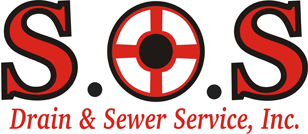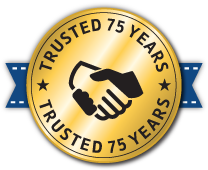A functioning sewer line is crucial for maintaining the hygiene and efficiency of your home’s plumbing system. Unfortunately, clogged sewer lines are a common issue caused by a variety of factors, including tree roots, grease buildup, and the improper disposal of non-degradable items.
Recognizing and addressing these clogs promptly is essential to prevent more severe plumbing problems and ensure the smooth operation of your household.
This blog post aims to provide a comprehensive, step-by-step guide on identifying the signs of a clogged sewer line, taking immediate actions, exploring DIY solutions, knowing when to call a professional, and implementing preventive measures to maintain a healthy sewer system.
Understand Sewer Line Clogs
When it comes to sewer line clogs, prevention is always better than cure. Understanding the common causes of clogged sewer lines can help you take proactive measures to avoid them. As mentioned earlier, tree roots, grease buildup, and improper disposal of non-degradable items are among the primary factors that lead to obstructed sewer lines.
Tree roots can infiltrate the sewer pipes through cracks or joints in search of water and nutrients, causing blockages and potentially damaging the pipes. Grease buildup occurs when fats and oils accumulate inside the pipes, reducing their diameter over time until they become entirely blocked. And flushing non-biodegradable items such as diapers, wipes, or feminine hygiene products down the toilet can also cause severe clogs.
Importance of Sewer Lines
Sewer lines play a crucial role in maintaining the cleanliness and functionality of our homes. They are responsible for carrying and disposing of wastewater from our sinks, toilets, showers, and appliances safely away from our living spaces. Without properly functioning sewer lines, sewage can back up into our homes and cause significant health hazards.
Moreover, clogged sewer lines can create unpleasant odors, slow drainage, and potentially damage your plumbing system if left unaddressed. This can lead to costly repairs or replacements that could have been avoided with proper maintenance.
Knowing how to identify and deal with clogged sewer lines is essential for every homeowner to prevent these potential issues and ensure the smooth operation of their household plumbing. By taking the time to understand and maintain your sewer lines, you can save yourself a lot of inconvenience and expenses in the long run.
Types of Sewer Lines
There are two main types of sewer lines commonly found in residential properties: public and private. Public sewer lines are owned and maintained by the local municipality, while private sewer lines belong to individual homeowners. It is important to understand which type of sewer line you have, as it can affect who is responsible for addressing any clogs or issues that may arise.
Public sewer lines typically run from your property and connect to the main sewage system, while private sewer lines only serve your home. Private sewer lines also tend to be shorter and easier to access for maintenance or repairs. Whichever type of sewer line you have, regular inspections and proper maintenance are crucial for avoiding clogs and ensuring the overall health of your plumbing system.
In the next sections, we will dive deeper into how to recognize and deal with clogged sewer lines, as well as preventive measures you can take to maintain a healthy sewer system. Whether you are experiencing a clog currently or want to prevent future issues, this guide will provide you with all the necessary information to keep your sewer lines in top shape.
Signs of a Clogged Sewer Line
Clogs can occur in any part of your plumbing system, but there are specific signs that can indicate a clogged sewer line specifically. These include:
- Foul odors coming from drains or toilets
- Slow draining sinks, tubs, or showers
- Gurgling noises coming from pipes or toilets
- Backflow of sewage into drains, toilets, or sinks
If you notice any of these signs, it is crucial to act quickly to prevent the issue from escalating. Ignoring a clogged sewer line can lead to more severe problems and potentially damage your home’s plumbing system. In the next section, we will discuss immediate actions you can take to address a clogged sewer line.
What to Do When You Have a Clogged Sewer Line
As soon as you suspect a clogged sewer line, it is important to take immediate action to prevent further damage and potential health hazards. The following are steps you can take to address a clogged sewer line before calling a professional:
Turn off the water supply:
If you notice any signs of a clogged sewer line, the first thing you should do is turn off your home’s water supply. This will prevent any additional wastewater from entering the pipes and potentially causing more significant backups or flooding.
Stop using plumbing fixtures:
Avoid using any sinks, toilets, showers, or other plumbing fixtures until the issue is resolved. Continuing to use them can worsen the clog and cause more damage to your plumbing system.
Try using a plunger:
If the clog is minor, you can try using a plunger to dislodge it. Make sure to use a toilet plunger for toilets and a sink plunger for sinks, as they are designed differently and may not be effective if used interchangeably.
Use an auger or snake:
For more severe clogs, you can try using an auger or snake to break up the blockage. This tool is inserted into the drain and rotates to push through any obstructions in its path.
Avoid using chemical drain cleaners:
While tempting, it is best to avoid using chemical drain cleaners as they can be harsh and potentially damage your pipes. They can also be harmful to the environment and may not effectively break up the clog.
In some cases, you may need to access your home’s cleanout pipe, which is a capped pipe usually located outside near where your sewer line exits your home. This allows for easier access to clear any blockages or perform maintenance on your sewer line.
When to Call a Professional
While you can try to address a clogged sewer line on your own, there are some instances where it is best to call a professional plumber. These include:
- If the clog persists after trying various methods.
- If you are unable to locate or access your home’s cleanout pipe.
- If you suspect the clog is caused by tree roots invading your pipes.
- If you have an older plumbing system that may require specialized equipment and expertise for repairs.
It is always better to err on the side of caution and call a professional if you are unsure or uncomfortable with handling the issue yourself. A licensed plumber will be able to accurately diagnose and resolve the problem, saving you time, money, and potential damage to your plumbing system.
Preventive Maintenance for Sewer Lines
Preventive maintenance is crucial for keeping your sewer lines in top condition and avoiding clogs. Here are some simple steps you can take to maintain a healthy sewer system:
- Regularly inspect and clean out your home’s drains, as buildup over time can lead to clogs.
- Avoid flushing anything other than toilet paper down the toilet, as other items can cause blockages.
- Dispose of cooking grease and oil properly, as they can solidify in pipes and cause clogs.
- Keep an eye on any trees or plants near your sewer lines, as their roots may grow towards them and invade the pipes.
- Consider having a professional plumber perform regular inspections and cleaning services to catch any potential issues before they become serious problems.
By following these preventive maintenance steps, you can save yourself from the inconvenience and expense of dealing with clogged sewer lines. Remember, regular maintenance is key to keeping your plumbing system healthy and functioning properly.
What are the Guideline for Harmful Liquid Disposal
In addition to maintaining your sewer lines, it is also important to properly dispose of harmful liquids to prevent clogs and protect the environment. Here are some guidelines for disposing of various liquids:
- Cooking grease and oil should never be poured down the drain. Instead, allow them to solidify in a container and dispose of them in the trash.
- Chemicals such as paint thinner, motor oil, and pesticides should not be dumped down drains or disposed of in regular household trash. These items can be dropped off at designated facilities for proper disposal.
- Medications should not be flushed down the toilet. Instead, take them to a designated medication drop-off location or follow FDA guidelines for safe disposal.
- Avoid pouring coffee grounds, eggshells, and other food waste down the kitchen sink. These can accumulate in pipes and cause clogs.
By following these guidelines, you can help maintain a healthy plumbing system and protect the environment from harmful substances.
Choose S.O.S. Drain & Sewer Services for all your drain and sewer needs
S.O.S Drain & Sewer Services is the go-to company for all your commercial and residential drain and sewer cleaning needs in Minneapolis, St. Paul, and the entire Twin Cities area. Our family-owned and operated business has been providing high-quality services since 1941, focusing on customer satisfaction and trust.
We offer a wide range of services including tree root removal from sewer lines, inspection and unplugging of drain tiles, removal of foreign objects from pipes and sewers, leaky pipe repair, roof drain cleaning, garage floor drain cleaning, storm drain cleaning, trench drains cleaning, clogged air conditioner condensation line cleaning, basin’s cleaning, clogged grease traps and more.
At S.O.S Drain & Sewer Services, we believe in providing upfront pricing with no hidden costs or surprise fees. Our main goal is to provide efficient services to have your drains and sewers operating properly, saving you from future expenses. We take pride in our high customer retention rate, as our satisfied customers refer us to their friends and family members.
Contact us today for a free estimate or book an on-site consultation. Our team is available 24/7 to better serve you in Minneapolis and St. Paul area.
FAQs
What should I do if I suspect a main sewer line clog?
If you suspect a main sewer line clog, it’s important to act quickly to prevent further issues. Start by ceasing the use of all plumbing fixtures to avoid exacerbating the blockage. You can attempt to clear the clog using a drain snake, which can be inserted into the main sewer line via a cleanout access point to dislodge the blockage.
How can I determine if my blocked sewer line is the cause of my clogged drain?
To determine if a blocked sewer line is causing your clogged drain, check if multiple drains in your home are draining slowly or not at all. This is typically a clear sign that the main sewer line, rather than individual drain pipes, is clogged. If only one drain is affected, the issue likely lies with the local drain pipe.
Can I use a drain snake to clear a clogged sewer pipe?
Yes, you can use a drain snake to clear a clogged sewer pipe. Drain snakes are effective tools for dislodging blockages in both sewer pipes and drain pipes. For main sewer line clogs, a larger, more powerful drain snake may be needed, which can often be rented from hardware stores if you do not own one.
What are the signs of main sewer line clogs?
Signs of main sewer line clogs include multiple drain pipes throughout the house draining slowly, water backing up out of drains or toilets, and gurgling sounds coming from the drains. These symptoms indicate a blockage in the main sewer line affecting the entire household plumbing system.



